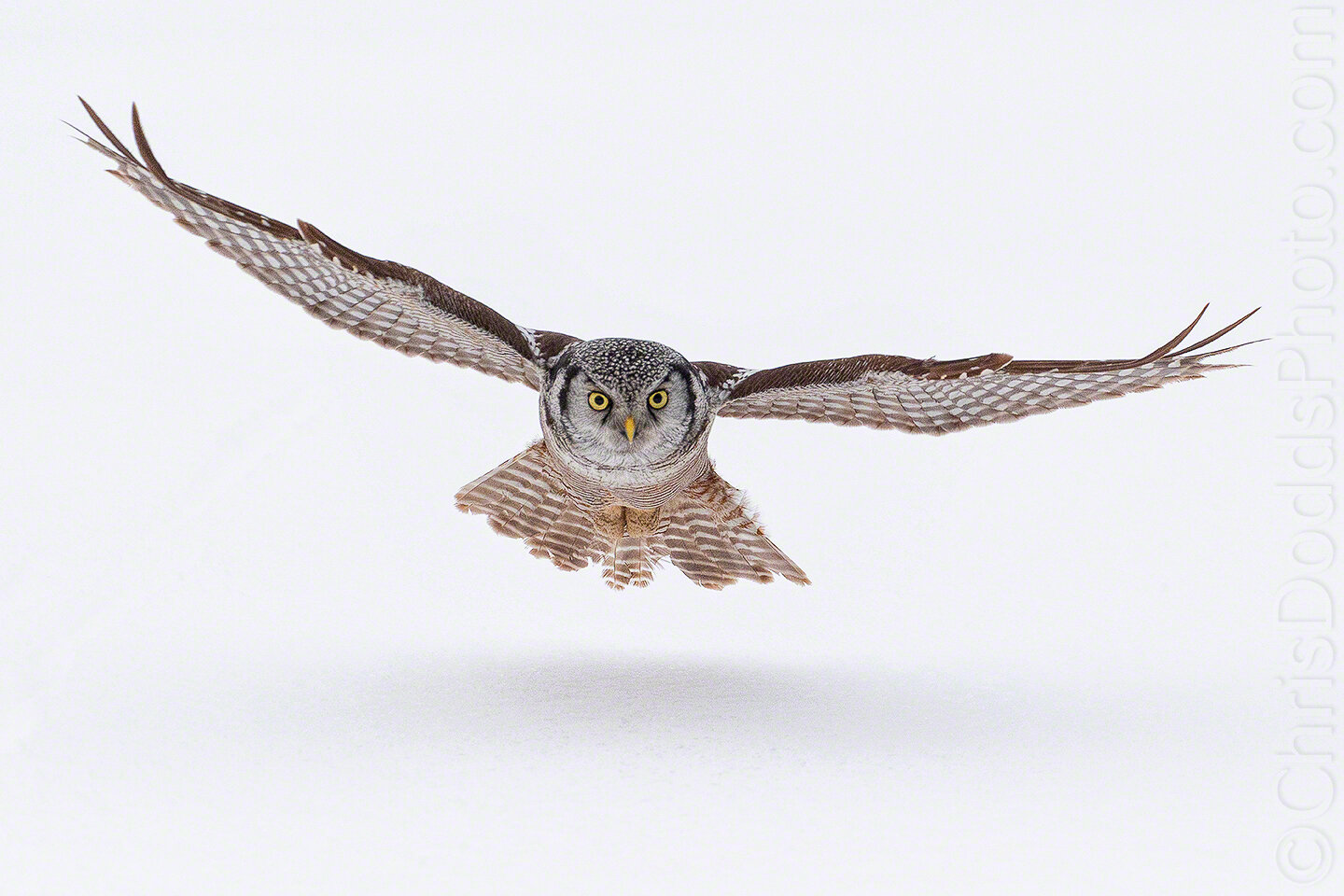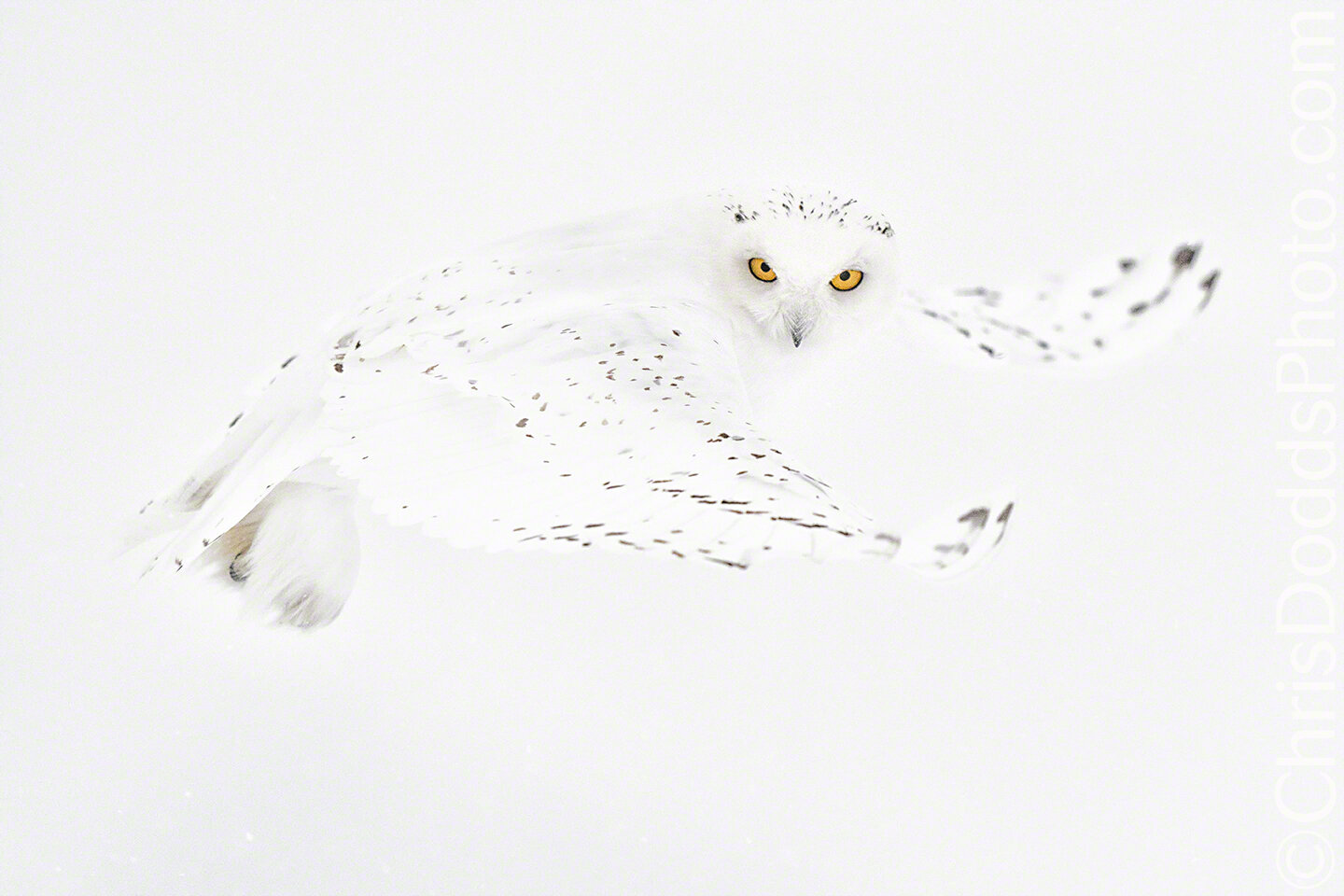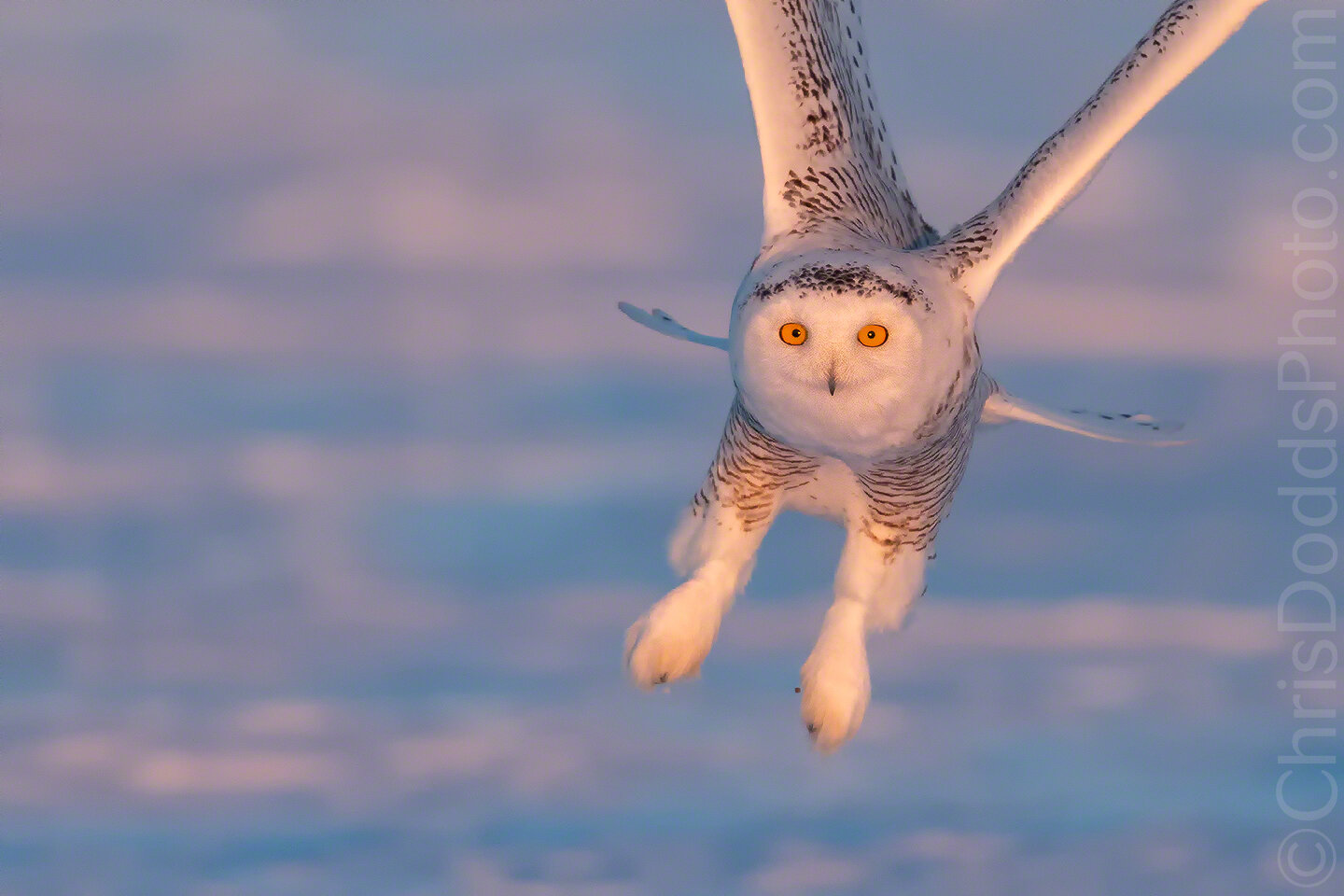Chris Dodds knows how to do a workshop!
“I had the pleasure of attending Chris' Snowy Owl Workshop this past January. To be honest, I did not know much about Chris before the trip. All I knew was the quality of his images on his website and that I wanted Snowy owl pictures. Needless to say, Chris met and exceeded my expectations. He goes over and above to get you in the right place at the right time to capture the best images possible. Having been on numerous workshops around the world with various leaders, I can say Chris worked harder than most..... He also made sure that we were in position to get a variety of images and not just 1000 photos of the same animal behavior. Chris knows his birds and what they are going to do next (as much as humanly possible). He teaches in a way that things make sense. I was getting frustrated with my photography before this trip. I was able to get great shots before the workshop but felt that the percentage of great shots to missed shots needed to be better. Chris explained ways to change a few of my bad habits in a way that no one else ever did. I have tried manual exposure in the past but never got comfortable with it but after a day or two with Chris it clicked in my mind and my images improved and percentage of keepers went up.
If you get a chance to go on a workshop with Chris I would highly recommend it. I know I will again.”
- Rick Susi Orlando, FL, USA
Northern Hawk Owl (Surnia ulula, Chouette épervière, NHOW) Quebec, Canada ©Christopher Dodds Sony Alpha a9 II Mirrorless Camera & Sony FE100-400 F4.5-5.6 G Master OSS @ 314mm ISO 3,200, f/9 @ 1/5,000s Manual Exposure mode. Join me for my winter owl workshops January & February to learn more CLICK HERE.





















